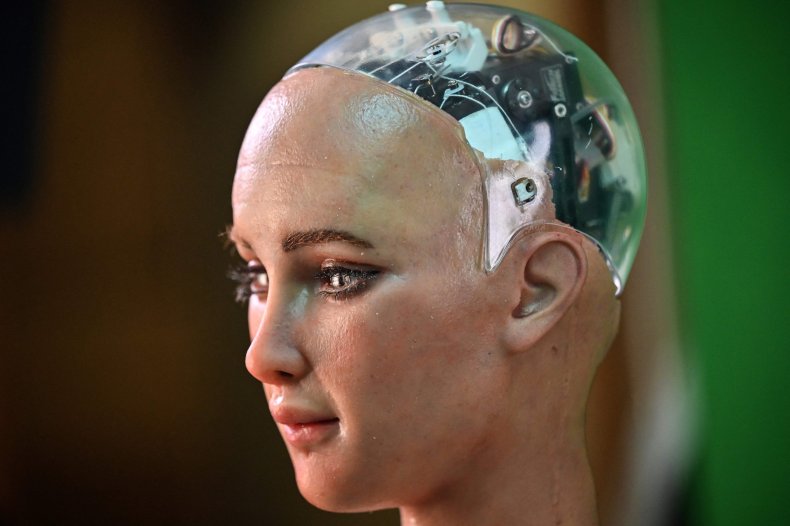OPINION | Eliminating Death Doesn’t Mean Life Will Get Boring

AUTHOR

Philosophers often say if humans didn’t die, we’d be bored out of our minds. This idea, called temporal scarcity, argues the finitude of death is what makes life worth living. Transhumanists, whose most urgent goal is to use science to overcome biological death, emphatically disagree.
For decades, the question of temporal scarcity has been debated and analyzed in essays and books. But an original idea transhumanists are putting forth is reinvigorating the debate. It doesn’t discount temporal scarcity in biological humans; it discounts it in what humans will likely become in the future—cyborgs and digitized consciousnesses.
The traditional temporal scarcity argument against immortality imagines the human being remaining biologically the same as it has for tens of thousands of years. Yet the human race is already augmenting the human body with radical technology. Globally, over 200,000 people already have brain implants, and Silicon Valley companies like Elon Musk‘s Neuralink are working on trying to get millions of us to become cyborgs.
A growing number of experts even believe by the end of the century, humans will likely have the ability to upload the brain and its consciousness into a computer. In the process, digitized people will overcome biological death and engage in far more complex ways of being, including grand new designs of consciousness and selfhood.

Historically, our perception and sense of self has been largely based on the signals our five senses (sight, hearing, touch, smell, and taste) send to our brain, as well as the way the brain itself is programmed and structured to think and remember things. As a result, humans barely experience the true complexity of the universe. Our eyes see less than 1 percent of the light spectrum. And our hearing is stuck in a tiny range of just 20 Hz to 20 kHz, far more limited than some animals.
In the future, as we become transhuman, and potentially, have robotic eyes instead of biological ones—our experiences of the universe will be markedly different. These bionic eyes will act as scientific laboratories capable of immediately registering previously unknown revelatory facts in our brains (such as the amount of COVID-19 floating around us at any given time). Coupled with faster ways of processing information in our brains via implants and artificial intelligence (AI), this new abundance of real time information of our environment will lead to an exponentially more complex and evaluatory existence.
Proponents of temporal scarcity argue that it’s our knowledge, fear, and expectation that our time alive is limited and finite which gives us value. But in a world where human perception and experience of the universe are constantly expanding and changing because of humanity embracing new technological ways of existence, the temporal scarcity argument fails. This is because so long as humans are evolving with new technology—something that has been constant since the dawn of modern humans—we will constantly see and experience the universe more newly than not.
Whether it’s flying in an airplane for the first time or discovering ChatGPT, new technology is always novel—and often life-changing. Something that is always novel and life-changing, by definition, defeats the main premise of the temporal scarcity argument—that indefinite time alive will ultimately be tedious.
The transhumanist argument is not exactly new. Religious philosophers have been arguing for centuries that eternal afterlives will also be new and joyous—presumably because a deity would have access to powers to make lives ever interesting. Some defenders of the temporal scarcity argument will say that “always being new” is just another way of getting bored. Afterall, the stereotype of eternally playing the harp while dressed in white robes in heaven doesn’t seem too interesting.
On the contrary, the transhumanist future does seem interesting—precisely because it will be continually literally new—meaning original and happening for the first time in a way that demands more attention and value than something that happens often. And most adult humans, when not under duress, are attracted to something new, whether it’s a new play toy, a new vacation destination, or a new sexual partner. Humans are inquisitive creatures by nature.
Scarcity will always be defeated by newness because scarcity means something is in short or finite supply. Whereas indefinite newness means one is always surprised, always experiencing something for the first time, and able to avoid boredom.
Because an entity like humans undergoing such technological change in the future will be constantly discovering new values, new creativity, and newly seeing the world, the core basis of the temporal scarcity argument loses its validity. Even if they live indefinitely, transhumans will not get easily bored or suffer from diminished values. In fact, the opposite is likely true; life will get more interesting and compelling as time goes on and technology continually changes us.
Zoltan Istvan writes and speaks on transhumanism, artificial intelligence, and the future. His 7-book essay collection is called the Zoltan Istvan Futurist Collection, and he was the subject of the documentary Immortality or Bust.
The views expressed in this article are the writer’s own.
.
.
 Ads by: Memento Maxima Digital Marketing
Ads by: Memento Maxima Digital Marketing
@[email protected]
SPACE RESERVE FOR ADVERTISTMENT


 Memento Maxima Digital Marketing
Memento Maxima Digital Marketing






